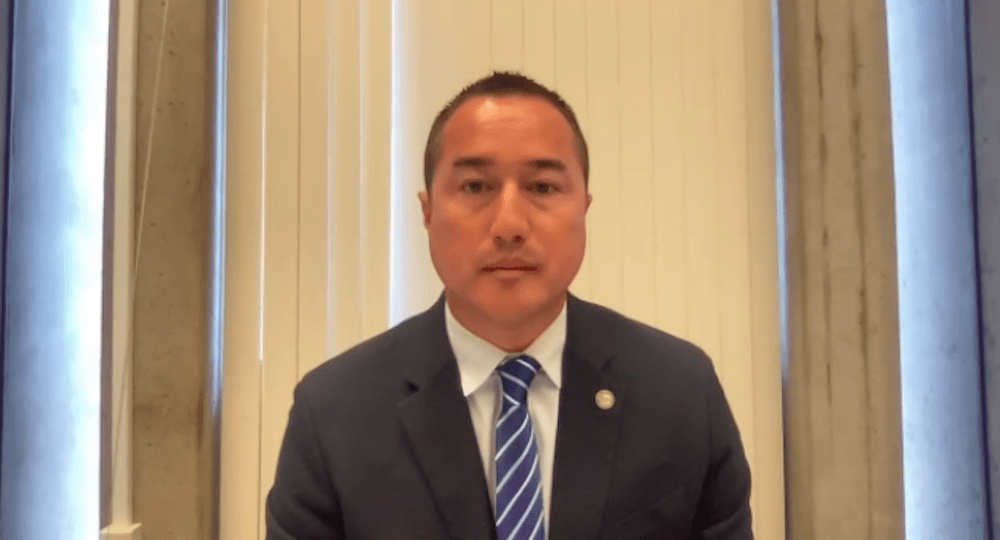Advertisement
Superintendent finalist vows to 'lean' on others to foster understanding inside Boston public schools

Tommy Welch, a regional superintendent for Boston Public Schools, highlighted the importance of teamwork and elevating underrepresented people into leadership positions across the district during a marathon round of public interviews Friday for the Boston school superintendent role.
Welch, who currently oversees a region of 15 schools serving 7,000 students in Charlestown, East Boston and the North End, stressed his community ties and willingness to broker relationships with people around him.
"I'm a relational leader," said Welch. "This is in my DNA."
The 44-year-old parent of two BPS elementary school children is one of two finalists vying for the top administrator role in the state’s largest school district.
He faced similar questions posed by many of the same individuals representing community, parent, teacher and student groups as Somerville Superintendent Mary Skipper a day earlier during her round of public interviews, which were broadcast live online.
Unlike Skipper, who has deep ties to the greater Boston region, Welch arrived in 2015, following then-superintendent Tommy Chang from the Los Angeles Unified School district to his current post.
Welch began his career as a teacher at LAUSD. He worked in the classroom for six years, primarily with multilingual students. He also served as a local leader in the district's teacher's union. He was a founding principal of two schools in the district before heading to Boston.
Welch was quick to acknowledge the fact that he is not originally from Boston, or even Massachusetts.
But during his seven years with BPS, Welch said he's gone to great lengths to get to know his community and its needs. When he moved to East Boston, he would walk into local restaurants and churches to introduce himself, and often hosted informational talking sessions with local residents. Welch explained those sessions were key to helping him authentically understand what community members wanted for their children.
He added that he often relied on well-connected people in his region – whom he called "power brokers" – to connect with voices that are often overlooked in district conversations. If he was selected as BPS superintendent, Welch said he plans to use this strategy to get to know Boston’s other diverse communities.
"I know that those power brokers like the one I know in Eastie exist in other communities," Welch said. "I know that I can lean on those people to get me to the people I need to talk to."
Asked what some of the biggest challenges are for underperforming BPS schools, Welch cited chronic absenteeism, and highlighted the correlation that absenteeism has with student performance. He suggested improving bus transportation services and making data for on-time arrival more transparent to the community.
He briefly raised the issue of adjusting school start times, a traditionally contentious issue for district leaders. While he did not go into the issue in depth, Welch highlighted how school start times prior to 8:00 a.m. can be problematic for some students.
He told the story of a student who travels an hour-and-a-half each day in order to arrive at school on time for a 7:30 a.m. start.
"Some of our students are coming from across town," he said.
Welch also signaled that he isn't afraid of taking on tough subjects.
"I'm not afraid of a fight," he said. "I'm not afraid to ask why, and ask why again."
Emphasis on data transparency
Welch promised to rely on data to guide his decisions.
"Holding people accountable is to make data visible and easy to access," he said.
Like Skipper, he also faced questions dealing with race and racial equity in schools and school leadership, especially when it comes to the city's Black residents.
Tanya Nixon-Silberg, a local mom and racial justice facilitator, asked Welch how he'd be responsive to the leadership and advocacy of women of color.
"I will lift up and elevate as many leaders of color as I can into our organization," Welch responded.
He also highlighted outgoing superintendent Brenda Cassellius's investment into social workers and parent liaisons. Welch said their work needs to be uniformly implemented across the district.
"If the school experience is not working for our Black students, it's not working for all of our students," he said. "If it's not working for our Black parents, it's not working for all of our parents."
Welch added that his ability to speak fluent Spanish is particularly helpful in his BPS region. On a couple of occasions he answered interview questions in that language.
The Boston school committee, the last group of the day to interview each of the two finalists, is scheduled to vote on its choice next week.
